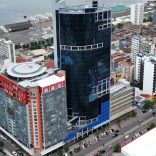Mozambique signs $20 billion agreement with Qatar's Al Mansour Holdings - Photos
External funding delays Mozambique’s development
Photo: Ministry of Finance
Mozambican Minister of Planning and Development, Salim Valá, believes that the country’s high dependence on external solutions delays development “and there is a need to break down barriers such as inertia and resistance to change.”
According to Valá – who was speaking on Monday, in the southern municipality of Matola, during the launch of the National Meeting for Planning and Making Operational the 2026 Economic and Social Plan and State Budget – it is urgent to break with cycles of “improvisation, reactive management and dependence on external solutions, which devalue endogenous options”.
“We have to break down barriers such as inertia, resistance to change, complacency, and fear of leaving our comfort zone”, he said. “The future requires us to have the courage to plan with vision and monitor with rigour. We must realize that there can be no sustainable development without strategic leadership. And there is no strategic leadership without data, without targets, without indicators, without control, without transparency, without good management and accountability, without commitment”.
The minister called on the government to strengthen its forecasting and anticipation capabilities in order to outline more promising development paths, maintaining ongoing interaction with various sectors of society, particularly universities and research centres.
He recalled that the 2025 State Budget has a deficit of 126.8 billion meticais (about two billion US dollars, at the current exchange rate) with total revenue of 385.8 billion meticais and expenditure of 512.7 billion meticais. The Budget is aligned with the Government’s new Five-Year Program (2025 – 2029) and aims at fiscal consolidation and stabilization of the public debt.
“Over the last three years, we have seen signs of recovery in the national economy, albeit growing moderately and below its potential, heavily influenced by the weight of agriculture and the extractive industry, and therefore still largely dominated by the primary sector”, he said.
During this period, the minister added, Gross Domestic Product (GDP) grew by 4.03 per cent, and forecasts for 2025 point to growth of 2.9 per cent. The rate of inflation, over the same period, said Vala, “was around 6.9 per cent, thanks to prudent monetary and fiscal policy management.”












Leave a Reply
Be the First to Comment!
You must be logged in to post a comment.
You must be logged in to post a comment.